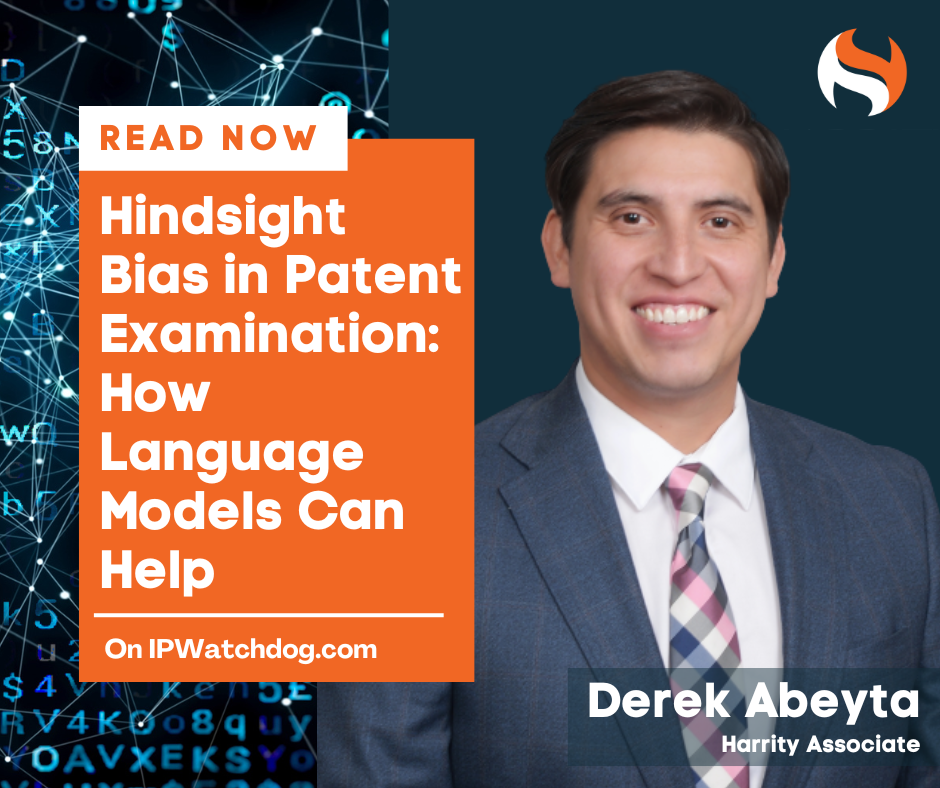Hindsight Bias in Patent Examination: How Language Models Can Help
Derek Abeyta covers “Hindsight Bias in Patent Examination: How Language Models Can Help” in a featured article for IPWatchdog.com.
The article discusses the issue of hindsight bias in the patent examination process and proposes the use of artificial intelligence (AI) models, specifically large language models, to address this problem. Hindsight bias occurs when a patent examiner unknowingly uses their knowledge of the invention to reject a claim as obvious. This can lead to incorrect determinations of obviousness, prolong prosecution, and result in unfair narrowing of independent claims. AI models can help mitigate this bias by providing an objective and consistent standard for determining obviousness. These models can analyze the examiner’s rationale for an obviousness rejection and identify instances of impermissible hindsight, thereby assisting the examiner in providing a more reliable assessment of patentability.
“Language models have the potential to reduce the likelihood of appeals and legal challenges, streamline prosecution, and lead to more consistent and cost-effective patent examination,” Derek says.
The article also highlights the challenge of determining whether an invention would have been obvious to a person of ordinary skill at the time of filing and how to overcome this challenge, the potential benefits of using language models, and whether they outweigh the initial costs and cons.
Read the full article to learn if language models offer a promising solution to mitigate hindsight bias, improve the patent examination process, and ensure consistency and objectivity in determining patentability on IPWatchdog.com.

